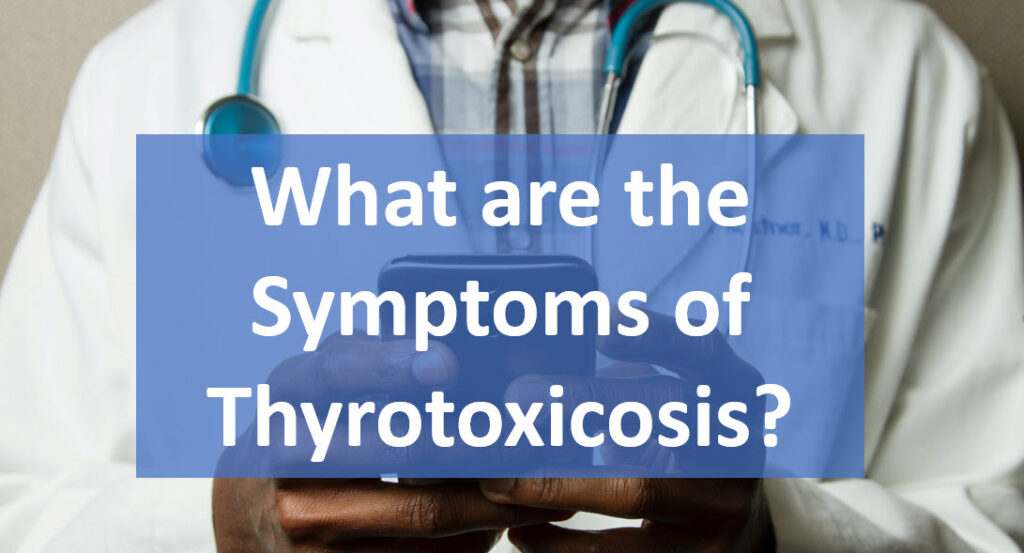Thyrotoxicosis means an excess of thyroid hormone in the blood stream. This happens most often because the thyroid gland makes too much thyroid hormones from antibodies caused by thyroid autoimmune disease. The thyroid gland (a small butterfly-shaped organ in the lower front of your neck) makes hormones that help your body use energy, stay warm, and keep your organs working the way they should. Hyperthyroidism is the most common cause of thyrotoxicosis. If you are currently suffering from thyrotoxicosis and need help, please contact thyroid specialist Bernadette Thomas, DNP at 302-482-2289 or Schedule an appointment online at BOOK NOW

What are the symptoms of thyrotoxicosis?
Mild thyrotoxicosis may not cause bothersome symptoms, however, symptoms associated with more severe cases include:
- Nervousness
- Irritability
- Fatigue
- Fast heartbeat
- Weight loss
- Insomnia
- Hair loss
- Thin skin
- Intolerance to heat
- Increased perspiration
- Muscle aches
- Weakness in upper arms and thighs
- Increased bowel movements
- Decreased menstrual flow
- Eye irritation or inflammation; “bulging” eyes
What Causes Thyrotoxicosis?
Graves’ disease: This condition is the most common cause of hyperthyroidism and thyrotoxicosis. Graves’ disease causes the immune system to mistake the cells of the thyroid gland for invaders and attack them with antibodies. It is not clear why this happens, but it makes the thyroid gland grow and make too much thyroid hormone. This condition tends to run in families, so genes may play a part in whether you get it, but keep in mind that it can also be caused by food sensitivities. Food sensitivities are not the same as food allergies. There is special testing to determine which foods should not be consumed.
Nodules: nodules are growths that can develop on the thyroid and affect how much hormone the thyroid gland can make. A single hyperfunctioning nodule is called toxic nodular adenoma, while multinodular goiter or Plummer disease means there are a number of nodules.
Struma ovarii: This is a rare type of ovarian tumor that’s made mostly of thyroid tissue. In some cases, it can cause hyperthyroidism.
Thyroiditis: A virus, bacteria, or certain medications (like lithium), or even your own immune system can inflame the thyroid gland and make it release too much hormone into the bloodstream.
Thyroid Medication: Some people take thyroid hormone in pill form to treat thyroid disease such as hypothyroidism (when your thyroid doesn’t make enough thyroid hormone). It is possible to have too much thyroid medication in your blood if your prescription is off or you don’t take the medication as directed. That is why it is important to have routine labs (TSH, FT3, FT4) to monitor thyroid hormone levels.
What are Treatments for Thyrotoxicosis?
Treatment for thyrotoxicosis will depend upon your age, the cause and severity of your illness, and other associated medical conditions. Untreated thyrotoxicosis can lead to serious medical complications from the long-term effects of hormone overproduction. Treatment options should be explored with a Thyroid Specialist that understands the consequences of the treatment options. Bernadette Thomas, DNP is a Thyroid Specialist who will explain the pros and cons of each treatment option. Bernadette provides Specialized Thyroid Care at Monarch Wellness Center of Delaware and offers in office appointments or Virtual appointments for patients. Call today at 302-482-2289 to make an appointment or SCHEDULE ONLINE.




